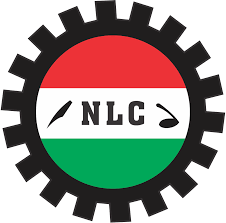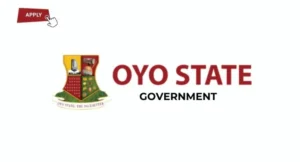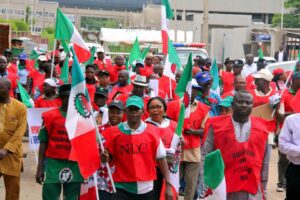
Independence of Manufacturers without importation is achievable
By Omolola Dede Adeyanju
Industrialization and the augment of Gross Domestic Product is a major factor that guarantees economic stability in every nation. It is also the base that determines the rate or level of poverty and wealth. Hence, the need for every government to ensure a congenial business environment for its citizens in order to increase productivity, raise level of exportation and ensure minimal level of importation.
The rising rate of importation of raw materials, goods and services is a grave threat to the “GIANT OF AFRICA’s” economy even at its 62nd Independence Anniversary. Recently, the Nigerian Association of Chambers of Commerce, Industry, Mines and Agriculture (NACCIMA) explicitly stated that the country’s manufacturing industry is under a bleak and despairing future. This is due to the fact that instead of having an increase in the rate of manufacturing companies in Nigeria, the rate or number of manufacturing companies are dwindling. Industrialists are forced to close down their factories and import manufactured finished products or relocate to neighboring West African countries because the business environment in the country is hostile.
Reacting concerning the measures that can be applied to dwindle the rate of importation in Nigeria, the Director General, Nigerian Association of Chambers of Commerce, Industry, Mines and Agriculture (NACCIMA), Mr Sola Obadimu told Nigerian NewsDirect that manufacturers could not be blamed for importation of goods or materials, “There is no law that compels manufacturers to patronize local materials. If manufacturers or the people generally decide to use foreign or imported goods, there is nothing anyone can do about it, except we opt for a protectionist economy which is not operational in Nigeria. This country operates on a liberal or market economy so we patronize and use what we want.
“Our dollar reserves are deflated and we have no tangible export which would have helped to boost our foreign exchange. Presently, all Nigeria’s exports are crude materials with little or no value. We cannot grow without exports with reasonable value. The fact that we import almost everything makes us also employ citizens of other countries where the goods or materials are manufactured from while our own citizens are riding ‘okada.’
“The inflation in the country is a ‘cost push inflation’ caused by the high cost of getting materials and input for production. The only cheap factor of production in Nigeria till this moment is labour. Even the federal and state houses, are you sure the furnitures, cushions and other things there are locally made? We need to know, all these things are relevant to be considered. We have to take a mirror and have a second look at ourselves. The Federal Government is considering raising 1% net profit to support NYSC, all these will increase the burdens and bills of private businesses. When they choose board members, we realize they are majorly government people.”
The DG finally noted that the best solution is for the government to have the ability to carry the people along in their policies, for them also to have a clear policy on all activities and to make the populace, not just the private sector alone, believe in them, so that there can be cordial cooperation and support on voluntary basis from the people. This he revealed, “will require some sense of responsible leadership and whether we have that at the moment, I don’t know, I am not competent to say.”
Following the recent confirmation of Nigeria’s agreement to compete in the African Continental Free Trade Area (AFCFTA), questions linger unanswered as to if the country can actively and proudly compete with neighboring countries on locally made products. There’s a feeling of optimism that this trade can as well open minds and create more avenue and encouragement to industrialists for more innovations and productions of new local products. With the emergence of new and valuable products, the nation can increase exportation and reduce the rate of importation.
As to how to set Nigeria to compete in the AFCFTA, the Executive Secretary, Paint Manufacturers Association (PMAN), Mr Jude Maduka assured Nigerian NewsDirect that with the right policies by the government to protect manufacturers, industrialists are set to compete. In his words, “ the question is, is the government ready? Are there infrastructures and facilities that can complement production and the economy? Even the road from Nigeria to Benin Republic, is it in good shape for transportation of goods and services? The railway being constructed too is not ready. Then, how will goods be adequately transported? If all these are put in place, there will be less to spend on transporting or exporting goods and services.
“With close monitoring and enforcement of standards in Nigeria, we can achieve an increase in exports of local products.
“Using the Painters association of Nigeria as a case study, I will say we are ready. We are prepared and we have paints that can compete with foreign standards and in the foreign market.”
Mr Maduka cited challenges facing the industry, mostly the paint industry as the high taxation and that the industry to be regulated, there must be sanctions on people producing adulterated products as this will make people generalize and believe that all the country’s products are substandard.
Although, he stated that 80% of the raw materials used in producing paints are imported but, the government and the Raw Materials Resource and Development Council (RMRDC) are embarking on different research on raw materials re-source and development in the country. He revealed that through the efforts of the council, calcium carbonate used in paint production which used to be imported is now locally produced in Nigeria, hence there is a form of development.
If such track can be maintained, Nigeria can boast of less importation in the nearest future.



